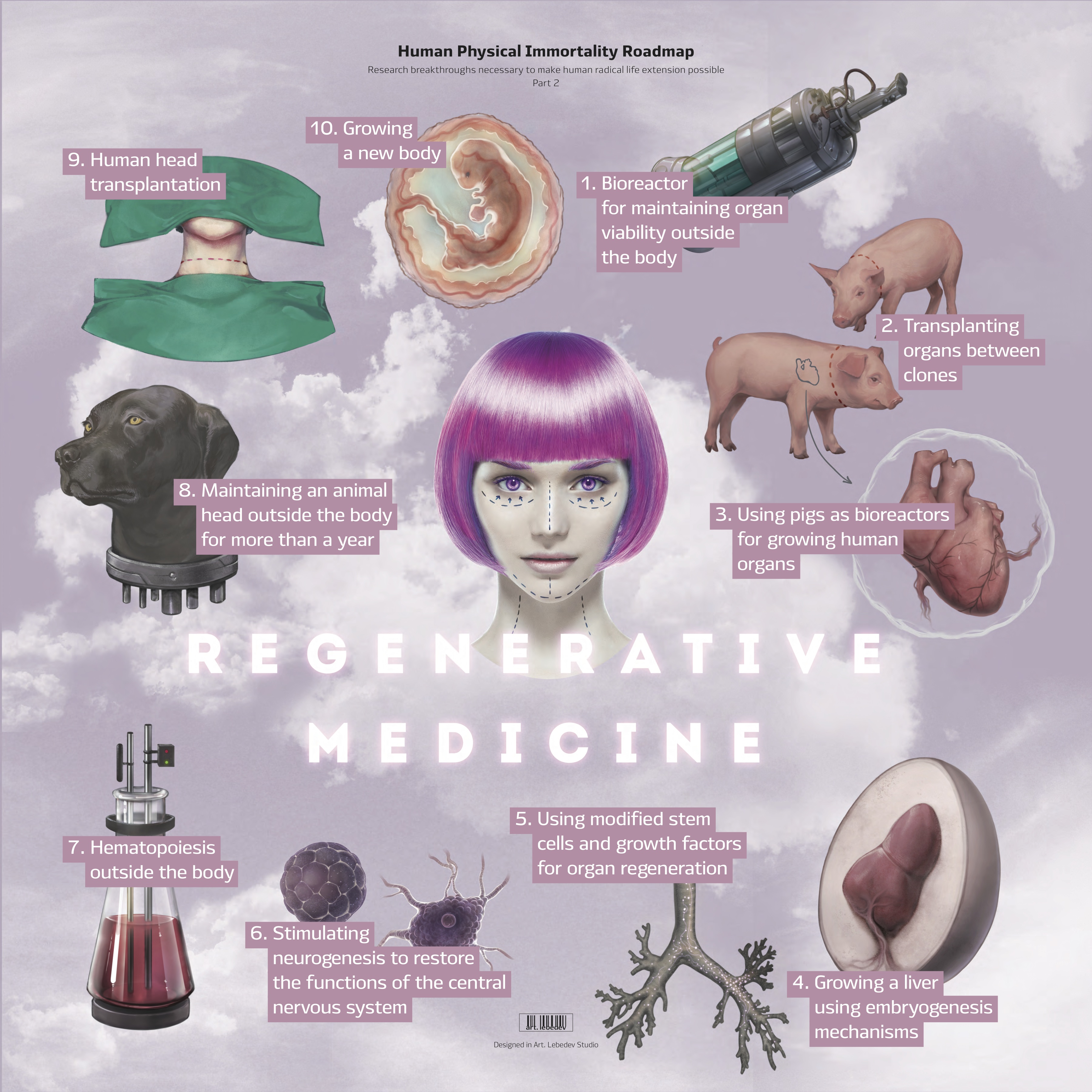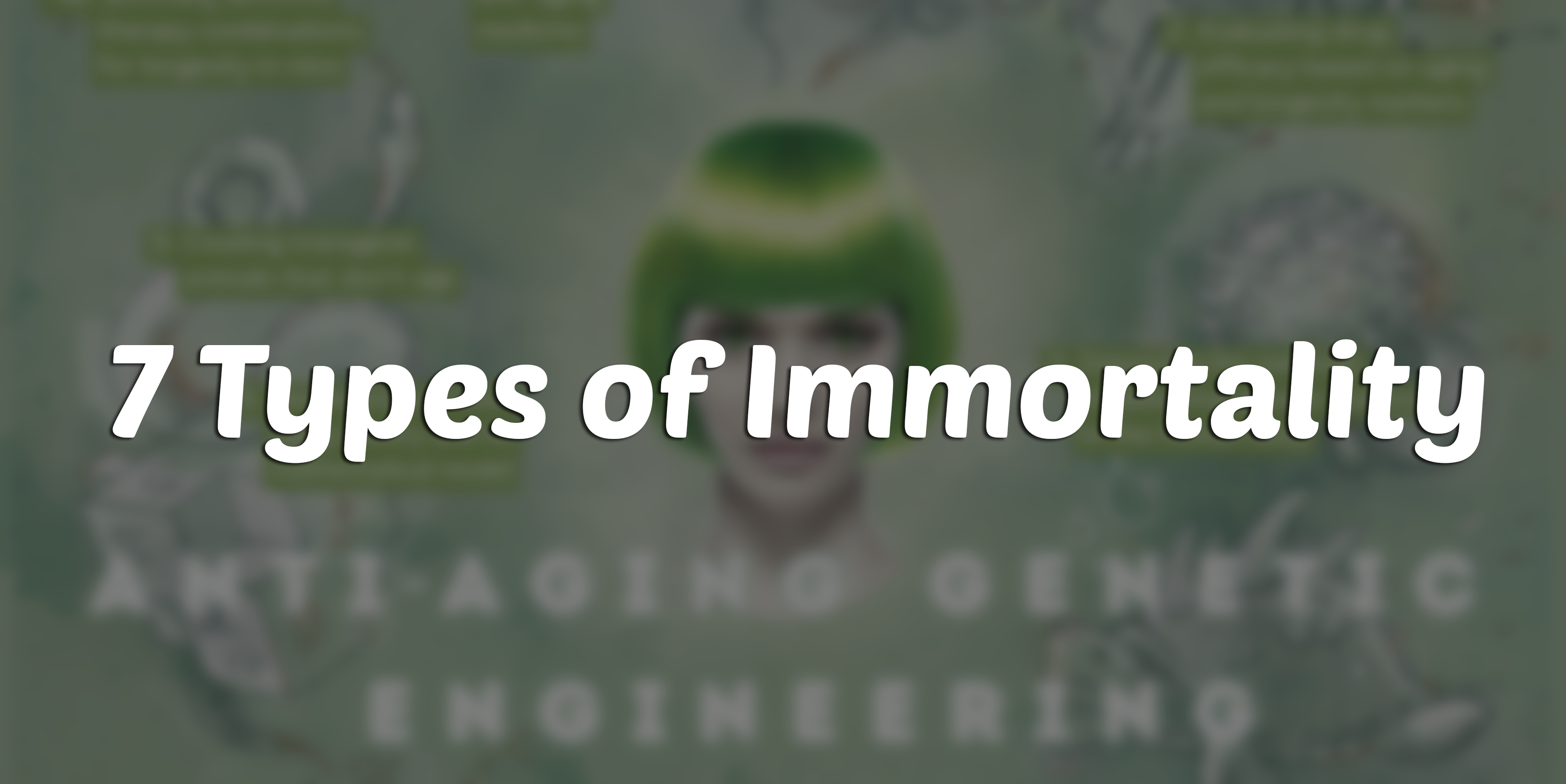Unlocking The Secrets Of Types Of Immortality: Are You Ready To Live Forever?
Imagine a world where death is no longer the ultimate endpoint. The concept of immortality has fascinated humanity since the dawn of time. From ancient myths to modern science, types of immortality have been explored in countless ways. But what exactly are these types, and how close are we to achieving them? Get ready to dive deep into the possibilities of eternal life!
Throughout history, people have been obsessed with the idea of living forever. We've seen it in literature, movies, and even religious texts. But what does immortality really mean? Is it just about living forever, or does it involve something more? In this article, we'll explore the various types of immortality and what they mean for the future of humanity.
As we delve into this topic, it's important to note that immortality isn't just one thing. There are different types, each with its own unique characteristics. From biological immortality to digital immortality, the possibilities are endless. So, buckle up and let's explore the fascinating world of eternal life!
- Discover The Best Dining Experiences At Luis Muntildeoz Mariacuten International Airport Restaurants
- Deepwoken Galestones The Hidden Gem Of The Digital Age
What Are the Types of Immortality?
When we talk about immortality, it's not just about living forever in the traditional sense. There are several types of immortality, each with its own set of rules and possibilities. Let's take a look at some of the most popular types:
Biological Immortality
This type of immortality focuses on the human body and its ability to live indefinitely. It involves finding ways to stop or reverse the aging process, allowing people to live forever in their physical form. Some scientists believe that this could be achieved through advancements in medical technology and genetic engineering.
Digital Immortality
Ever thought about uploading your consciousness to a computer? Digital immortality involves creating a digital version of yourself that can live on indefinitely. This could be achieved through advanced AI and machine learning technologies. While it may sound like science fiction, some experts believe it could become a reality in the not-so-distant future.
- Usain Bolts Wife Everything You Need To Know About The Queen Behind The King Of Speed
- Mha Eri The Rising Star In The Hero World
Exploring the Concept of Eternal Life
Now that we've covered the basics, let's dive deeper into the concept of eternal life. What does it mean to live forever, and how would it impact our lives? Here are some key points to consider:
- Eternal life could change the way we approach relationships, careers, and personal growth.
- It might also lead to overpopulation and resource scarcity if everyone were to live forever.
- There are ethical considerations to take into account, such as the potential for inequality in access to immortality technologies.
Biological Immortality: The Science Behind Eternal Life
Biological immortality is one of the most fascinating types of immortality. It involves finding ways to stop or reverse the aging process, allowing people to live indefinitely in their physical form. Here's a closer look at some of the science behind this concept:
Genetic Engineering
Advances in genetic engineering have opened up new possibilities for extending human life. By manipulating our DNA, scientists may be able to eliminate diseases and slow down the aging process. This could lead to a future where people live much longer, healthier lives.
Stem Cell Research
Stem cells have the unique ability to develop into any type of cell in the body. This makes them incredibly valuable for regenerative medicine, where damaged tissues and organs can be repaired or replaced. Some researchers believe that stem cell therapy could play a key role in achieving biological immortality.
Digital Immortality: The Future of Consciousness
While biological immortality focuses on the physical body, digital immortality takes a different approach. It involves creating a digital version of yourself that can live on indefinitely. Here's how it works:
Brain-Computer Interfaces
Brain-computer interfaces (BCIs) are devices that allow the brain to communicate directly with computers. They have the potential to enable people to upload their thoughts and memories to a digital platform, creating a digital version of themselves. Some companies, like Neuralink, are already working on developing advanced BCIs.
Artificial Intelligence
AI plays a crucial role in digital immortality. It can be used to analyze and replicate human thought processes, creating a digital representation of a person's consciousness. As AI technology continues to evolve, it may become possible to create highly accurate digital versions of ourselves.
Philosophical Implications of Immortality
While the concept of immortality is exciting, it also raises important philosophical questions. What does it mean to live forever, and how would it affect our sense of identity and purpose? Here are some key points to consider:
- Immortality could change the way we think about mortality and the value of life.
- It might also lead to a loss of meaning and purpose if people no longer have to face the inevitability of death.
- There are ethical concerns to consider, such as the potential for inequality in access to immortality technologies.
Types of Immortality: A Closer Look
Now that we've explored the science and philosophy behind immortality, let's take a closer look at the different types:
Biological Immortality
This type of immortality focuses on extending human life through advancements in medical technology and genetic engineering. It involves finding ways to stop or reverse the aging process, allowing people to live indefinitely in their physical form.
Digital Immortality
Digital immortality involves creating a digital version of yourself that can live on indefinitely. This could be achieved through advanced AI and machine learning technologies, as well as brain-computer interfaces.
Spiritual Immortality
Some people believe in the concept of spiritual immortality, where the soul continues to exist after death. This is often tied to religious or spiritual beliefs and can vary widely depending on cultural and personal perspectives.
The Role of Technology in Achieving Immortality
Technology plays a crucial role in the quest for immortality. From genetic engineering to AI, advancements in science and technology are bringing us closer to achieving eternal life. Here's a look at some of the key technologies involved:
CRISPR
CRISPR is a revolutionary gene-editing technology that allows scientists to make precise changes to DNA. It has the potential to eliminate genetic diseases and slow down the aging process, making it a key player in the pursuit of biological immortality.
Quantum Computing
Quantum computing is a powerful new technology that could revolutionize the way we process information. It has the potential to accelerate advancements in AI and machine learning, bringing us closer to achieving digital immortality.
Challenges and Ethical Considerations
While the concept of immortality is exciting, it also comes with its fair share of challenges and ethical considerations. Here are some key points to keep in mind:
- There could be significant social and economic implications if only a select few have access to immortality technologies.
- Overpopulation and resource scarcity could become major issues if everyone were to live forever.
- There are also ethical concerns about the potential for misuse of these technologies, such as creating superhumans or digital versions of people without their consent.
Conclusion: Are We Ready for Immortality?
As we've explored in this article, the concept of immortality is both fascinating and complex. There are several types of immortality, each with its own unique characteristics and possibilities. While we may not achieve eternal life in our lifetime, the advancements in science and technology are bringing us closer to this goal.
So, are we ready for immortality? That's a question that only time will tell. In the meantime, feel free to leave your thoughts and questions in the comments below. And don't forget to share this article with your friends and family! Together, we can continue the conversation about the future of humanity and the possibilities of eternal life.
References:
- de Grey, A. (2007). Ending Aging: The Rejuvenation Breakthroughs That Could Reverse Human Aging in Our Lifetime. St. Martin's Press.
- Kurzweil, R. (2005). The Singularity Is Near: When Humans Transcend Biology. Penguin Books.
- Bostrom, N. (2003). "Are We Living in a Computer Simulation?" Philosophical Quarterly, 53(211), 243-255.
Table of Contents:
- Biological Immortality
- Digital Immortality
- Philosophical Implications
- Types of Immortality
- The Role of Technology
- Challenges and Ethical Considerations
- Cour De Alane The Ultimate Guide To Discovering A Hidden Gem
- Gemstones Hypixel The Ultimate Guide To Boosting Your Skyblock Adventure

7 Different Types of Human Immortality

7 Different Types of Human Immortality

15 Powerful Symbols of Immortality and Their Meanings